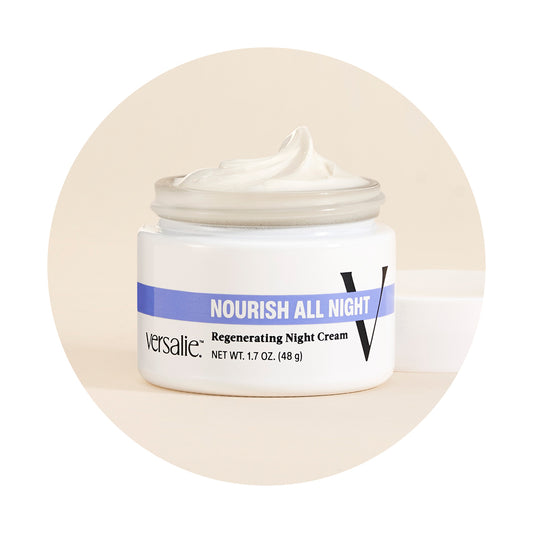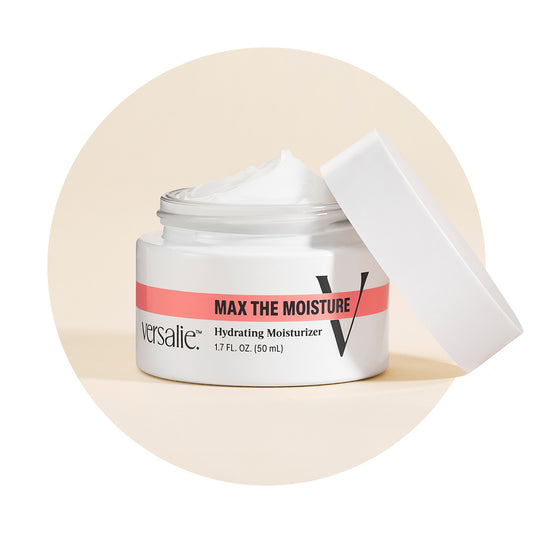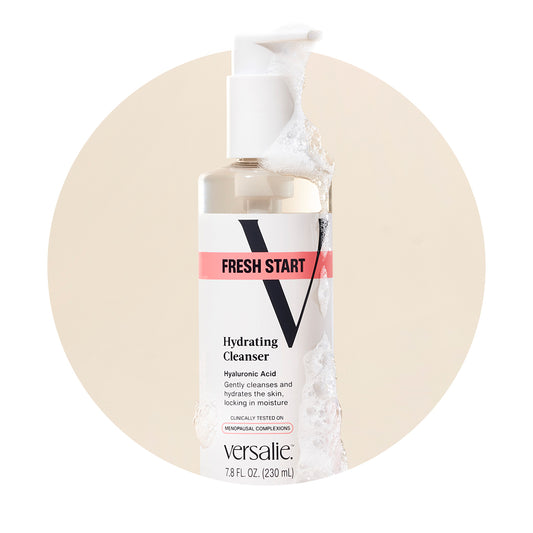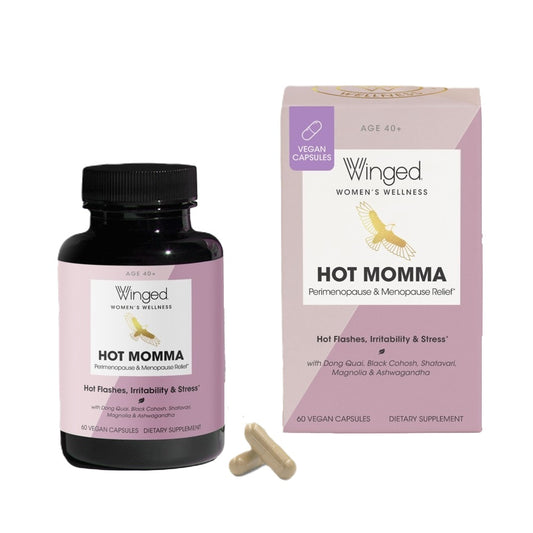Over our lifetime, we’ve learned to recognize the effects of hormones. We blame them for moodiness, discomfort, feeling a little off. But what are hormones, exactly? They're chemical messengers that are released into the bloodstream and carry messages to and from different organs in the body. They’re responsible for helping our bodies function. So, when our hormones are going through some pretty big changes, it’s easy to see how they can bring with them some pretty big challenges.
What affects big changes in our hormones?
Puberty
The first of these hormonal changes happens for females typically between the ages of 8 and 13, with the introduction of puberty. During this time, hormone levels begin to increase and stimulate the production of estrogen. As a result, your breasts, ovaries, uterus, and vagina mature. You start having periods once a month, which will continue until the next big, potential hormonal change: pregnancy.
Pregnancy
If someone becomes pregnant, there are shifts in the hormones the body produces. Pregnancy causes the body to produce changes in the levels of various hormones:
- Estriol/Oestriol (E3). A type of estrogen that’s produced in much higher amounts during pregnancy to help the uterus grow and stay healthy, support the fetus, and help prepare the body for childbirth and breastfeeding.
- Progesterone. This hormone is mainly produced by the ovaries and thickens the uterine lining during your monthly cycle. If you become pregnant, progesterone levels can increase up to 10 times higher than normal. This helps prevent the uterus from contracting and causing pre-term labor. During pregnancy, much of the progesterone is produced by the placenta.

Other hormones involved in pregnancy include prolactin, human chorionic gonadotropin (hCG), and human placental lactogen (hPL).
Not getting your period due to pregnancy may be a welcome break for some. But for others, the change in hormones can have some other effects — from nausea and vomiting to extreme fluctuations in emotions. Luckily, these effects only last around 9 months, give or take.
Perimenopause and menopause
The effects of hormonal changes during the menopausal transition can last a whole lot longer — up to 14 years. Perimenopause is the time when estrogen and progesterone start to decrease, periods become irregular, and periods eventually completely stop. The definition of menopause is absence of periods for 12 months in a row. Of course, as our hormone levels slowly decrease during this period, there are many symptoms that may start to ramp up. Some of the most well-known include hot flashes/night sweats, mood swings, and vaginal dryness.
Mother-daughter talk: How can I connect with my daughter?
These are three big stages in our lives and hormones can play a big part. Hormonal changes are inevitable, and they can be tough to deal with. But here's the good news! Mothers and daughters can help each other navigate this challenging terrain. By gaining a better understanding of these changes, both of you can provide much-needed support to each other.
Versalie spokesperson Niecy Nash-Betts understands the importance of talking to your children about menopause at any age:
"Your children may be decades away from experiencing menopause like my daughters, but the sooner they know about it, the better! Try to discuss the menopause symptoms you’re comfortable sharing in real time so they can think back to them down the road. It is an investment you’re making for your kids’ future, while also helping them understand any current changes in your mood, health or demeanor."
Talk openly about it
It all starts with age-appropriate conversations. If your daughter is older and isn’t aware that you’re experiencing symptoms associated with hormonal changes, she won’t know that you may need support. Don’t wait for her to ask what’s going on. Menopause isn’t as obvious as a pregnancy bump. Let her know the challenges you’ve been facing and about your menopause experience. Moms may not always be comfortable letting their family know they’re struggling. But often just being open and honest can help relieve a whole lot of stress.

Be sure to acknowledge her hormonal challenges as well — without comparing them to your own. You’re likely experiencing some similar symptoms — as well as some very different symptoms — both physically and mentally. It’s important for both of you to express yourselves, as well as to sit back and just listen.
If your daughter is younger, it’s less about having her help you navigate menopause and more about helping her simply understand what you’re going through. When she understands what’s going on, she’s less likely to take things like moodiness and irritability personally. Instead, she can empathize with what you’re going through and may even feel more comfortable sharing the hormonal changes she is experiencing herself.
Practice self-care
This is a gift that you can both give yourselves — and that you should give yourselves. Self-care goes way beyond mani-pedis and is about doing things that help you live well and improve your physical and mental health. Self-care can include eating healthy food, listening to a podcast, practicing gratitude, walking in nature, and spending time with family and friends. And self-care isn’t an indulgence. It can help you manage stress, boost self-confidence, lower your risk of illness, increase your energy, and improve overall happiness.
Laugh out loud
When it comes to promoting good health, bringing laughter into your life is key. Laughter can trigger mood-boosting endorphins and can stimulate the heart, lungs, and muscles. It can also help decrease physical tension. Laughing may also help reduce symptoms of depression and anxiety. So, when it feels like your hormones are putting you both on edge, look for a laugh by:
- Turning on your favorite comedy sitcom or podcast.
- Reminiscing about a funny event that happened in your family (e.g., Remember when Uncle Lee fell in that bush on Halloween?!?).
- Returning to your favorite funny book.
- Heading to social media for videos and memes.
Dealing with changing hormones can be a real pain. But knowing that you and your daughter are both working through them can help you both come out on the other side even stronger.








